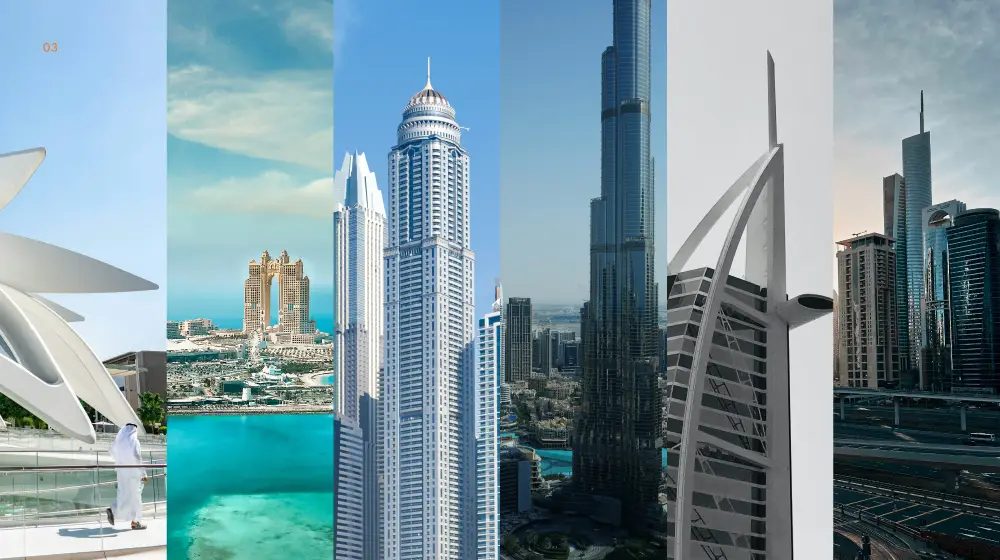In 2025, the United Arab Emirates remains a magnet for business owners, global investors, and fast-growing startups. But the landscape has evolved. Setting up a company here isn’t just about securing a trade license or registering with the right authority, it’s about building a strategic, future-proof business structure that aligns with updated tax laws, compliance requirements, and operational goals.
Whether you’re expanding into the UAE or restructuring an existing operation, your business structure plays a critical role. It affects everything from tax liability to regulatory burden, investor confidence, and how easily you can scale. The introduction of corporate tax, along with increased global scrutiny on substance and transfer pricing, has made it more important than ever to get this right.
Table of Contents
In this guide, we’ll walk through:
- The types of legal entities available
- Choosing between mainland and free zone jurisdictions
- Navigating UAE’s corporate tax law in 2025
- Meeting Economic Substance Regulations
- Leveraging holding companies for tax efficiency
- Understanding transfer pricing and CFC regulations
- Real-life structuring examples and expert support
Let’s explore how to build a tax-efficient, legally compliant, and operationally effective business structure in the UAE.
What is a Business Structure?
Understanding what a business structure is can be the difference between smooth operations and long-term headaches. At its core, a business structure is the legal and operational framework within which your company exists. It defines how your business is registered, how it’s taxed, how liability is managed, and how decisions are made. Whether you’re a solo entrepreneur or part of a growing team, choosing the right structure of business is one of the most important decisions you’ll make.
There are several types of business structures available in the UAE, each suited to different goals and needs. For instance, some structures offer full foreign ownership, while others provide access to government contracts or allow you to open offices anywhere across the Emirates. In 2025, with corporate tax regulations fully in effect, choosing the right business structure is not just a legal formality—it’s a tax planning strategy.
The structure of business also influences how profits are distributed, how much administrative work is required, and whether you can bring on investors or partners. For instance, setting up a Free Zone company may offer tax exemptions and 100% repatriation of profits, but limit your ability to trade directly with the mainland. On the other hand, a Mainland structure may allow broader commercial freedom but comes with full corporate tax exposure. That’s why understanding the different types of business structures is essential before making a move.
In the UAE, the most common types of business structures include:
- Sole Establishment
- Limited Liability Company (LLC)
- Civil Company
- Free Zone Company
- Branch Office
- Holding Company
Each of these represents a different approach to the structure of business, and there’s no one-size-fits-all. Your choice will depend on your operations, tax planning strategy, and long-term growth plans. What’s crucial is that the business structure you choose supports your objectives and complies with the UAE’s ever-evolving regulatory landscape.
By evaluating the different types of business structures, entrepreneurs can better position themselves for local and international success. And in 2025, with more emphasis on substance, reporting, and transparency, the importance of aligning your business structure with your actual operations has never been greater.
Understanding Legal Entity Types in the UAE
The first foundational step in setting up a UAE operation is selecting the right legal form. It defines how your business structure will function, who can own it, and how it’s taxed or regulated.
Free Zone Company (FZC or FZ LLC)
Free zones are popular for international operations, online businesses, and service providers that don’t need a physical presence in the UAE mainland. As of 2025, over 40 free zones are active in the UAE, each catering to specific industries. To understand the variations within freezone structures, learn more about the difference between FZE and FZCO.
A Free Zone Company allows 100% foreign ownership, fast-tracked setup, and access to a suite of business services. Importantly, many free zone entities still enjoy 0% corporate tax if they qualify as a Qualifying Free Zone Person (QFZP). However, this requires meeting detailed criteria related to income sources, accounting segregation, and substance requirements which we’ll cover shortly.
For a broader perspective on business structures, see the difference between LLC and Freezone in UAE.
Mainland Company (LLC)
Mainland structures are best suited for businesses serving the local market. As of 2025, most commercial activities in the UAE mainland allow 100% foreign ownership, eliminating the need for a local partner in many cases. The key advantage here is flexibility: mainland companies can do business across the UAE without needing intermediaries.
However, they are subject to the full scope of the UAE Corporate Tax Law. That means profits above AED 375,000 are taxed at 9%, and proper bookkeeping, tax returns, and transfer pricing compliance become mandatory.
Offshore Company
Often misunderstood, offshore companies in the UAE are primarily used for holding assets or conducting international trade. They cannot lease physical office space or hire local employees and are not recognized as tax residents under UAE law. Their utility has declined since the global push for transparency, and they are not considered an ideal standalone business structure for operational activities.
Holding Company
A holding company is designed to own shares in other companies, real estate, or IP. It doesn’t conduct daily operations but plays a key role in optimizing cash flow, managing risk, and consolidating control. Many entrepreneurs incorporate holding companies in free zones with strong treaty networks (like ADGM or RAK ICC) to minimize tax leakage on global income.
If you’re building a multi-entity business structure, a holding company can act as the cornerstone, offering asset protection and tax consolidation opportunities.
Mainland vs. Free Zone Jurisdictions
One of the most strategic decisions in your business structure is choosing where to set up. Mainland and free zone jurisdictions each come with unique benefits and trade-offs.
In 2025, it’s no longer a simple tax vs. market access decision. The introduction of corporate tax, updated QFZP rules, and economic substance standards have significantly narrowed the gaps between jurisdictions.
Mainland companies can operate anywhere in the UAE and internationally. They can win government contracts, rent offices anywhere, and serve the UAE consumer market directly. But they are fully taxable under the corporate tax regime and must comply with all financial reporting standards.
Free Zone entities enjoy tax incentives, but only if structured correctly. To maintain 0% tax as a QFZP, the company must:
- Be registered in a designated free zone
- Earn qualifying income (e.g., from exports, inter-free zone transactions, or qualifying passive income)
- Maintain adequate substance in the free zone (offices, staff, expenses)
- Keep separate books for mainland income vs. qualifying activities
If a free zone company earns non-qualifying income (such as selling directly to mainland customers), it risks losing its tax benefits. That’s why many companies create hybrid business structures, combining a free zone entity with a mainland branch or subsidiary to preserve benefits while ensuring full compliance.
If you would like to know more about pros and cons of where to set up your company in UAE, please check our guide on free zone vs mainland.
Understanding UAE Corporate Tax in 2025

The UAE corporate tax law, in effect since June 2023, continues to evolve. It applies to most legal entities and branches operating in the country.
As of 2025, the key details remain:
- 0% corporate tax on taxable profits up to AED 375,000
- 9% corporate tax on profits above AED 375,000
Free Zone companies can still qualify for 0% tax if they meet the QFZP requirements. This includes proving adequate economic substance, segregating non-qualifying income, and reporting transparently.
Notably, passive income such as dividends, interest, and royalties from foreign sources or other free zone entities often qualifies for the 0% rate. But mistakes in accounting or documentation can jeopardize this.
Mainland entities, on the other hand, are taxed by default and must register for corporate tax with the Federal Tax Authority (FTA), file returns annually, and prepare audited financials if they cross the AED 3 million revenue threshold.
A well-structured business structure will proactively manage these obligations—splitting functions, ring-fencing revenue, or leveraging group relief where allowed to reduce taxes in UAE.
Economic Substance Regulations
Economic Substance Regulations (ESR) were introduced in the UAE to counter harmful tax practices and align with OECD standards. As of 2025, these rules are strictly enforced, and non-compliance can result in fines or license suspension.
You must comply with ESR if your business structure involves any of the following activities:
- Holding company activity
- Headquarters or distribution services
- Leasing, financing, or insurance
- Intellectual property or shipping
To pass the economic substance test, you must:
- Carry out core income-generating activities in the UAE
- Maintain an adequate number of employees, operating expenditures, and physical offices
- File an ESR return and submit a detailed economic substance report annually
Holding companies are subject to a reduced version of the ESR test, but they must still file notifications. As such, even passive business structures must stay aware of substance obligations.
Holding Companies: A Strategic Asset

For entrepreneurs with multiple ventures or cross-border income, a holding company can be the strategic backbone of a smart business structure.
Here’s how:
- Consolidate ownership of various subsidiaries
- Receive global dividends or licensing income
- Optimize group taxation through UAE’s treaty network
- Simplify fundraising, M&A, and estate planning
By placing IP or shares under a holding company in a favorable free zone (such as ADGM or RAKEZ), business owners can benefit from tax efficiency, stronger asset protection, and regulatory simplicity.
But timing and structure matter. For instance, if you intend to qualify for QFZP treatment, the holding company must conduct relevant income-generating activities and meet substance rules. Otherwise, tax benefits could be denied.
Transfer Pricing & Controlled Foreign Companies (CFC)
If your business structure involves related-party transactions, whether between group companies, branches, or foreign subsidiaries then you must comply with UAE’s transfer pricing regulations.
Transfer pricing ensures that transactions between related parties are conducted at market rates. As of 2025, this includes:
- Loans and service agreements
- Royalty or licensing deals
- Cross-border purchases or sales
You must:
- Disclose related-party transactions in your corporate tax return
- Maintain documentation (Local File, Master File) if you cross the thresholds (AED 200M revenue or AED 50M intra-group transactions)
- Apply the arm’s length principle in pricing decisions
Controlled Foreign Company (CFC) rules are also coming into focus. These are designed to prevent profit shifting to low-tax jurisdictions. If your UAE-based entity owns foreign companies in jurisdictions with less than 9% tax, you may be required to report and pay tax on their undistributed income.
These provisions make it critical to design your business structure not only for local compliance but also to withstand international scrutiny.
Key Factors in Selecting the Right Business Structure in the UAE

When deciding on a business structure in the UAE, there are several critical factors to consider. The right business structure will not only impact your day-to-day operations but also determine your tax obligations, compliance requirements, and long-term sustainability.
Here’s a breakdown of the key factors to consider when selecting the most suitable business structure:
1. Business Type and Operations
The nature of your business is a fundamental consideration when selecting a business structure. For example, a small consultancy may benefit from the simplicity of a sole proprietorship or a civil company, while a larger organization or one that requires external investment may need a more complex business structure like a limited liability company (LLC) or joint-stock company. Understanding the size, scope, and operational requirements of your business will guide you toward the appropriate business structure.
2. Ownership and Control
In the UAE, business structure laws vary depending on the type of entity. Foreign investors, for instance, may face different restrictions on ownership depending on whether they are setting up in the mainland or in a free zone. Free zones often allow 100% foreign ownership, while mainland businesses may require a local sponsor or partner for specific business types.
The choice of business structure affects the degree of control you can maintain over the company, so it’s essential to assess how much involvement you want from partners, investors, or sponsors. If retaining full control is crucial, you may prefer a business structure like a sole proprietorship, where ownership is entirely in your hands.
3. Tax Efficiency and Compliance
Taxation is another pivotal factor in choosing the right business structure. The UAE has undergone significant changes in recent years to improve its tax framework, including the introduction of corporate tax in 2023. Certain business structures may benefit from tax exemptions or preferential rates based on their location or sector.
For example, businesses registered in a free zone may be eligible for tax holidays or reduced tax rates, making them an attractive option for foreign investors and businesses focused on maximizing tax efficiency. Meanwhile, mainland companies will have to comply with the new corporate tax regulations but may enjoy greater access to the UAE market and government contracts.
4. Long-term Growth and Investment Potential
If your goal is to scale your business or attract investors, selecting a business structure that facilitates growth is essential. Some business structures, such as LLCs or joint-stock companies, are better suited for companies that anticipate raising capital, issuing shares, or expanding their operations internationally. Conversely, simpler business structures like sole proprietorships or partnerships may limit your ability to raise funds or grow beyond a certain point.
Consider how your business structure will influence the ability to attract investment, whether from venture capitalists, private equity, or crowdfunding, and how it aligns with your long-term goals.
5. Regulatory and Legal Compliance
Each business structure in the UAE comes with its own set of regulatory requirements. While free zones offer a relatively tax efficient company setup process with fewer regulations, mainland businesses typically need to adhere to more complex local regulations and compliance measures. For example, businesses in the mainland must adhere to the UAE’s Economic Substance Regulations, which require companies to have substantial activity within the UAE for certain business structures.
Before choosing a business structure, ensure that you understand the regulatory landscape that applies to your business and can meet the compliance requirements of the chosen legal entity.
6. Exit Strategy and Succession Planning
When establishing a business in the UAE, it’s also important to think about the long-term picture, particularly regarding exit strategies or succession planning. Some business structures offer more flexibility when it comes to selling the business, transferring ownership, or passing it on to heirs. LLCs and joint-stock companies, for instance, have well-established procedures for these processes, while sole proprietorships or partnerships may require more complex legal procedures.
You can also check our in-depth guide on how to start a business in Dubai
GCG Structuring Can Help you Set Up a Tax Efficient Business Structure

At GCG Structuring, we specialize in helping entrepreneurs and businesses set up the most tax-efficient and compliant business structure in the UAE.
We start with a personalized consultation to understand your goals, then recommend the ideal business structure, whether it’s a free zone company, mainland setup, or offshore entity. Our team guides you through legal entity selection, tax optimization, and ownership considerations, ensuring your structure supports both short-term performance and long-term growth.
From paperwork and licensing to staying up-to-date with UAE regulations, we handle every detail so you can focus on building your business with confidence.
Tap the link below and book a free consultation to take the first step.
FAQ
1. 0 What is a business structure and why does it matter in the UAE?
A business structure refers to the legal and operational framework a company is built on. In the UAE, the structure you choose affects everything from tax obligations to ownership rights, visa eligibility, and the ability to repatriate profits.
2. 0 Is it possible to have multiple business structures under one owner in the UAE?
Absolutely. Many entrepreneurs operate several companies under different business structures (e.g., one mainland and one free zone entity) to separate risk, optimize taxes, or serve different markets.
3. 0 How does the structure of business operations impact taxation in the UAE?
The structure of business operations, such as whether you’re in a free zone, mainland, or offshore, directly affects how your company is taxed under the UAE’s corporate tax framework. Some structures offer partial or full exemptions if they meet specific criteria.
4. 0 Are some types of business structures more suitable for online businesses in the UAE?
Yes. For digital entrepreneurs or e-commerce setups, free zones that support virtual business licenses and remote business models are often the most practical. These types of business structures eliminate the need for physical office space and offer simplified visa solutions.
5. 0 What are the risks of choosing the wrong business structure in the UAE?
Choosing the wrong option from the different types of business structures can lead to limited visa quotas, unexpected tax liabilities, operational restrictions, or difficulties in opening bank accounts. It can also result in non-compliance if the structure doesn’t align with your actual business activities.
6. 0 Can I switch between different types of business structures after setup?
It is possible to switch between different types of business structures after setup, but not always simple. Restructuring involves closing the existing entity and transferring assets or setting up a new one. Each structure comes with its own legal and financial implications, so professional advice is essential.





